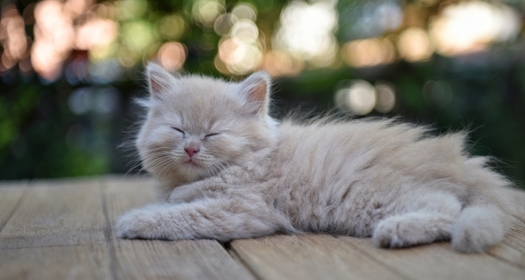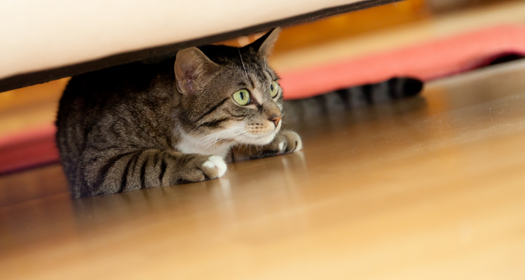

Nutritionally, cats are not like humans or dogs.
Cats are strict carnivores (meat-eaters) and have quite unique nutritional requirements. They have higher protein requirements than most other animals as well as specific requirements for nutrients such as taurine, arginine, arachidonic acid (a fatty acid), extra niacin (a B vitamin) and Vitamin A. Mostly, these nutrients are present in sufficient quantities in animal-based proteins such as meat, fish and eggs but are inadequate or unavailable in plants. Thus, cats are true carnivores - and must consume animal protein in their diet to meet these unique nutritional requirements and cannot be vegetarian.
Cats also have quite unique feeding behaviours.
Domestic cats typically eat 10 to 20 small meals per 24-hour period which mimics the natural feeding patterns of cats in the wild. This pattern reflects the evolutionary relationship with cats and their prey where repeated cycles of hunting throughout the day and night are required to provide enough food. Cats can also be quite erratic eaters consuming little food for several days then consuming a large amount.
It is important to provide cats with proper nutrition and care for each stage of their life from kitten-hood through to old age, in order to maximise their health, longevity and quality of life.
A kitten’s nutritional needs are different from those of an adult cat and must be met by a small quantity of food which is all a kitten’s stomach can accommodate. Kitten foods should therefore be formulated with very high quality ingredients - increased calories, protein, vitamins and minerals are necessary for the dramatic growth occurring in the kitten’s first few months of life. The right balance is crucial to avoid unnecessary excesses of nutrients.
Kitten foods are designed to be fed from weaning to 12 months of age. Pregnant and nursing queens should also be fed kitten foods free-choice during the last third of pregnancy and throughout lactation.

One of the most common human foods offered to cats is milk.
This practice is best avoided because cats lack the enzyme to digest the lactose in milk which can lead to diarrhoea.
Cats are considered ‘adults’ between 1 and 6 years of age. Adult cat foods are specifically formulated for ‘normal’ weight adult cats. Certain nutrients such as salt, minerals & protein should be controlled to avoid skeletal and kidney diseases. The mineral magnesium should be restricted and acidic urine should be produced in order to reduce the risk of struvite crystals or stones. These can form in the urinary tract which may cause Feline Lower Urinary Tract Disease (FLUTD), a common problem in cats. Feeding highly digestible foods with quality ingredients helps to reduce litter box waste and odour, important for owners of indoor cats.
Often cats become inactive when confined indoors, or once they have been desexed. These conditions may make animals prone to weight gain. In fact it’s estimated up to 30% of cats may be overweight or obese. In this situation, an ideal ‘light’ adult cat food should be fed. Check the food has reduced fat and calories and increased fibre – this will satisfy a cat’s appetite while avoiding obesity.
As cats age they are more likely to develop health problems.
Areas of particular concern are obesity, kidney disease, urinary tract health and dental disease. Senior cats are those aged 7 years and over. It’s important you take your senior cat for regular vet checks (every 6 months). This way, early disease signs can be detected and addressed accordingly. In most cases, healthy senior cats should receive a diet with fewer calories, a higher taurine level, less phosphorous and a less acidic urine pH than foods for younger adult cats. Foods for senior cats should also have a softer kibble making it easier to chew.
In the last 10 years there have been significant advances in the nutrition of cats. From foods that help control hairballs, to ones that help clean your cat’s teeth. There are a multitude of options often making it hard for pet owners to select the best one for their pet. Remember, it is important to choose a food that meets your cat’s individual nutritional requirements based on age, activity level and general well being. Premium foods offer complete and balanced diets with good quality ingredients and controlled levels of minerals. If you still find it hard to make a decision, then consult your vet or vet nurse. They will be able to recommend the best food for your furry friend!
Article by Hill Science Diet for The Pet Directory











Leave Comment Below